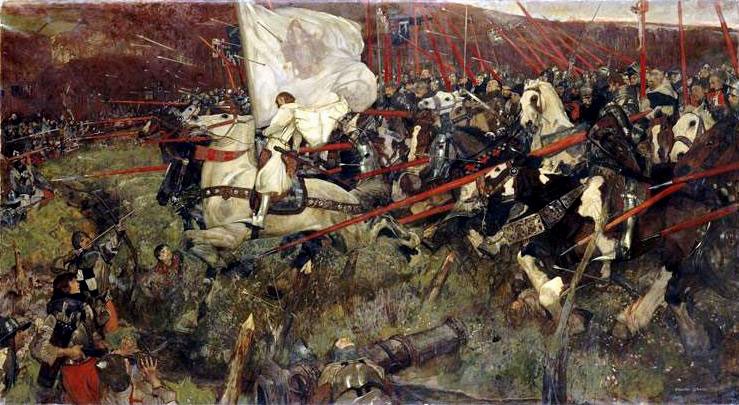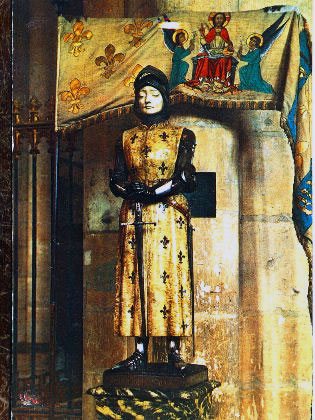
All this is very beautiful, but there is something even more beautiful that they asked me to make explicit. But what can I say? Infinite things are ineffable. The pulchrum [beauty] of an ideal is reflected in the soul of the one who fights for it.
Take, for example, Saint Joan of Arc. Everyone sees the pulchrum of her figure. What is it? It is the pulchrum of a virgin who does the will of God. And since God wants to make a fighter out of her, He draws extraordinary strength from her virginal weakness and with it defeats stronger men.
Novena to Saint Joan of Arc
What is this in the soul of Saint Joan of Arc? She is a knight, not a “knightess.” She is a fragile, fine and delicate maiden as behooves the feminine sex. However, she is a warrior, and a great warrior! How does one explain this? The explanation is in the equilibrium of the qualities that exist in her. She has the strength of a man, the delicacy of a woman, the force of a virgin who knows how to defend herself and has the necessary integrity of soul. But above all, she is a soul to whom God spoke through voices; a soul that at a certain moment, so to speak, heard the voice of God. Such a light overshadowed her that one has the impression that Saint Joan of Arc radiates light at all moments of her life.

Even in the tragic moment when the flames began to spread on the wood pile to which she was tied and which finally burned her, she shone even more than the very flames. It was a reflection of the great love of God that moved her soul.

The preceding article is taken from an informal lecture Professor Plinio Corrêa de Oliveira gave on February 16, 1990. It has been translated and adapted for publication without his revision. –Ed.
English translation and first published by Nobility.org.
